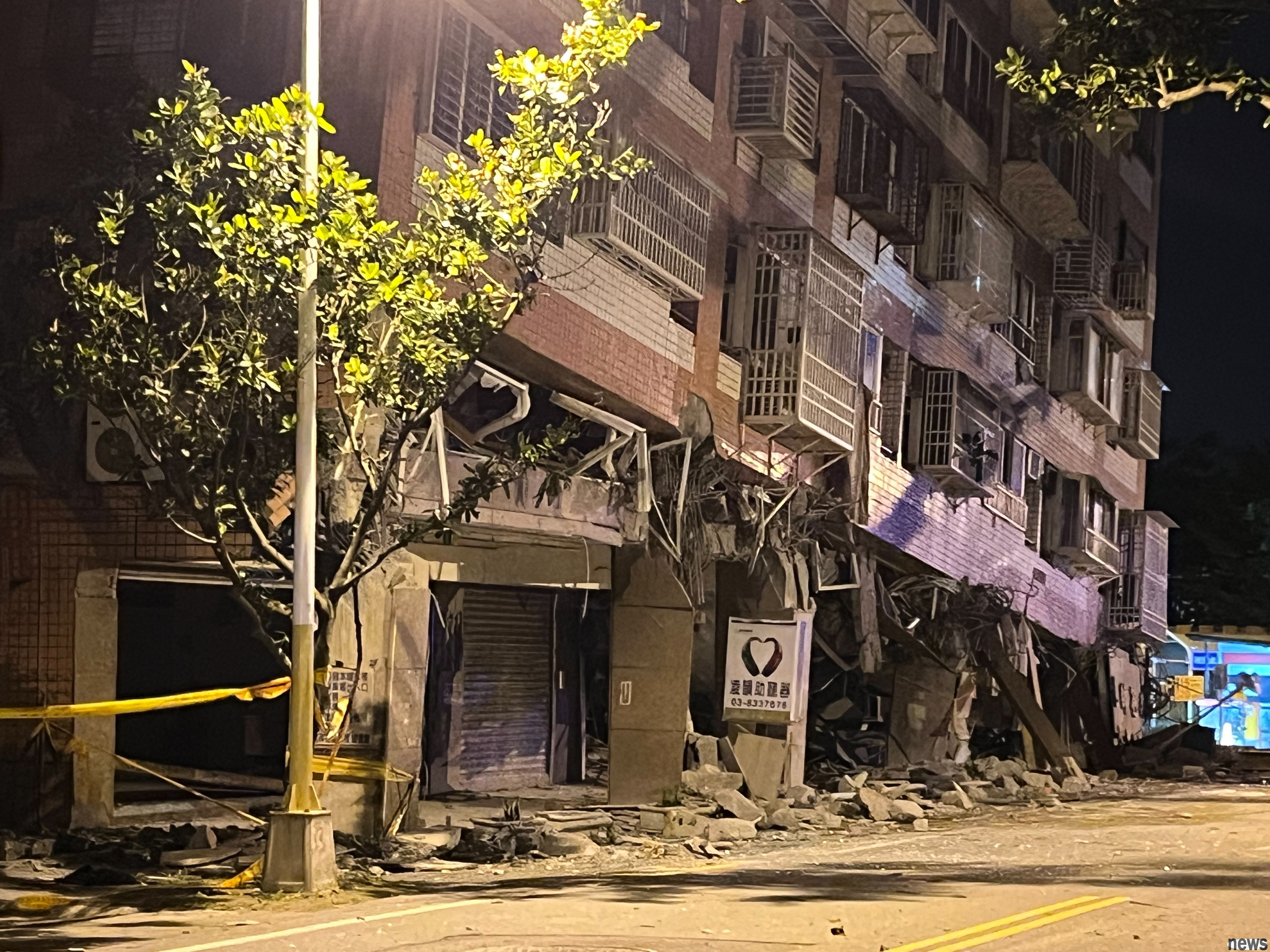
There were constant earthquakes in Taiwan yesterday. At 2 a.m. today, two large-scale earthquakes with a scale of over 6 occurred. Many people were "wake up" and the constant shocks made people not know whether to escape or sleep. Experts said that if you wake up by an earthquake while sleeping, don’t get up and look for a table to hide. In the darkness and unconsciousness, it may cause collision hazards. First, lie on the bed and "protect the head with a pillow" and ensure that there are no items that may fall from the ceiling and bed. Experts also put forward 4 suggestions on the "Disaster Prevention Package" to prevent problems in normal times.
When you are awakened during a dream, should you escape or sleep?There have been dozens of earthquakes in Taiwan from yesterday evening to now, and the Hualien area has been shaking violently. The two buildings have collapsed, and the local people have been alarmed and they cannot sleep at all. According to the Central Gazette Administration, there have been 83 earthquakes this morning as of 6 am, of which 2 have occurred in total with a scale of 6 or above, and 10 have occurred in size of 5 to 6, and many people have difficulty sleeping overnight. Many people felt the earthquake while sleeping and chose to escape directly from their homes.
The time of earthquakes may occur at any time in 24 hours a day. It is difficult to estimate where you will be. It is very important to do a good job in various disasters. Liu Yuhan, secretary of the Taiwan Disaster Medical Team Development Association, said that if an earthquake occurs late at night, many people will be asleep. At this time, "don't move" in bed. First, use a pillow to protect yourself, and ensure that there are no items that may fall from the ceiling and bed. During the day, you can hide under the table, but when you sleep halfway through, you will find the table, and you will be in the dark and unclear, which will be even more dangerous.
"Emergency Resistance Package" preparation 4 principlesDue to various disasters, or even earthquake protection, the "Emergency Resistance Package" in the family must also be maintained. Liu Yuhan reminds four principles: food is preferred, cleaning medical supplies are second, and warm clothing is third. The remaining items are placed according to needs, and according to the number of family members, prepare a relatively large number of avoidance bags, one bag per person.
1. Food: Dry food and drinks must be prepared well. There are many vacuum packaging foods on the market, or foods that can be eaten with water. Dry food can be selected for high-heat drying.2. Cleaning and medical supplies: personal medicine, household medicines, external injuries, packaging supplies, hemostasis belts, moisturizing towels, and hygienic cotton, etc.
3. Warm clothing: prepare for emergency clothing for at least 3 days.
4.Other items: stock, cash, certificate photobook, flashlight, battery, lighter, mobile power, etc. Some commercially available difficulty avoidance packages will be prepared, and the public can choose suitable products by themselves.
"Update the bag every six months. It is a good time for the New Year and Pudu." Liu Yuhan suggested that dry noodles and soak noodles are easy to expire once they are put, so he fixedly updated the items in the bag every six months. For example, the New Year and the Zhongyuan Pudu are all times when the National People's Congress pays homage. They will buy a lot of dry noodles. At this time, you can take out the old dry noodles and eat them. When putting in new products, it can not only maintain the performance of the bag regularly, but also avoid wasting food.
When disasters occur, the people may not have to wait until the rescue of the difficult personnel, and self-rescue is also very important. Liu Yuhan also said that everyone may face different levels of injuries during disasters, and the measures for emergency response are different. There are many NGOs (non-profit organizations) in the store that provide anti-disaster training courses, or even training for first-line personnel. People can prepare their own survival and first aid skills according to their own needs.